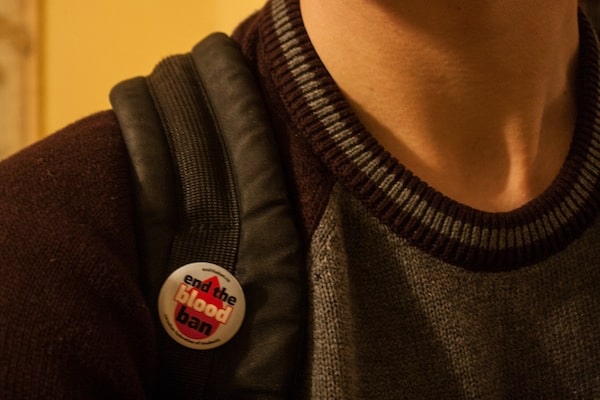On July 22, 2013, Canadian Blood Services (CBS) lifted a thirty-year-old policy forbidding men who have sex with men (MSM) from donating blood, only to replace it with one that prohibits them from donating blood if they have had sex with another man within five years of donation. The policy does not take into account a person’s ability to produce clean blood tests. Student organizations are speaking out against the policy, including the Canadian Federation of Students (CFS), and U of T’s LGBTOUT.
The motion to instate the five-year deferral period for MSM began in 2011, following a 2010 Ontario Supreme Court ruling that stated that there was insufficient evidence to support a lifetime ban, but upheld the ban anyway.
While CBS says that the new policy is a step forward, many have criticized the policy.
The CFS, alongside the Canadian AIDS society, has launched a campaign against the policy entitled “End The Ban.” The campaign aims to eliminate the discrimination that prevents MSM from donating blood. It raises several points as to why the policy is both unfair and ineffectual. It claims that at-risk behaviours practiced by heterosexuals are overlooked, that the policy ignores the present blood donor shortage, and that it lacks sufficient scientific evidence. Alastair Woods, a chairperson for the CFS, opposes the ban. “Ideally, we want the ban to be overturned entirely and for the CBS to move towards a risk-assessment model that targets unsafe sexual practices regardless of the sexual orientation of the persons involved,” said Woods.
U of T’s LGBTOUT organization is also critical of the ban, calling it a fake fix. Corey Scott, LGBTOUT’s public relations officer, said that the ban actually worsens the situation: “Instead of being banned for life, men who have had sex with men are being asked to reform their lifestyles, abstain, or lie about the last time they have had sex.” Scott said that the focus of the issue should shift to promoting safer sex supplies. “Ultimately there are better screening methods to ensure blood donations are safe. This really shouldn’t have to be a queer issue — CBS needs to get with the times.”

Doctor Mark Downing, the chief of infectious disease at St. Joseph’s Health Centre, says that while MSM continue to be a high-risk group for HIV infection, it is important to consider the lifestyle of every individual involved when assessing the risk of having blood disease. “Part of it is going back to the ‘80s — when the epidemic started it was identified with MSM, so it has been stigmatized over time.”
Downing praised the new policy. “The issues that blood services face is the window period between when an individual gets infected and when the test is positive. I think that the move to the five-year ban was a good one. I can see where they are coming from and why CBS is taking gradual steps towards moving forward. It is unfortunate that MSM are stigmatized, but the issue is that CBS is looking at all sorts of groups and it can be difficult to determine what is reasonable and what is not,” he said.
Criteria for the eligibility of blood donors differ globally. In Britain and Australia, the deferral period for MSM is one year. In Italy and some other European countries, there is no ban on blood donations from MSM. Instead, one’s ability to donate blood is based on whether or not they are engaged in unsafe sexual behaviours. In contrast, the United States maintains a permanent ban of blood donation from MSM.


